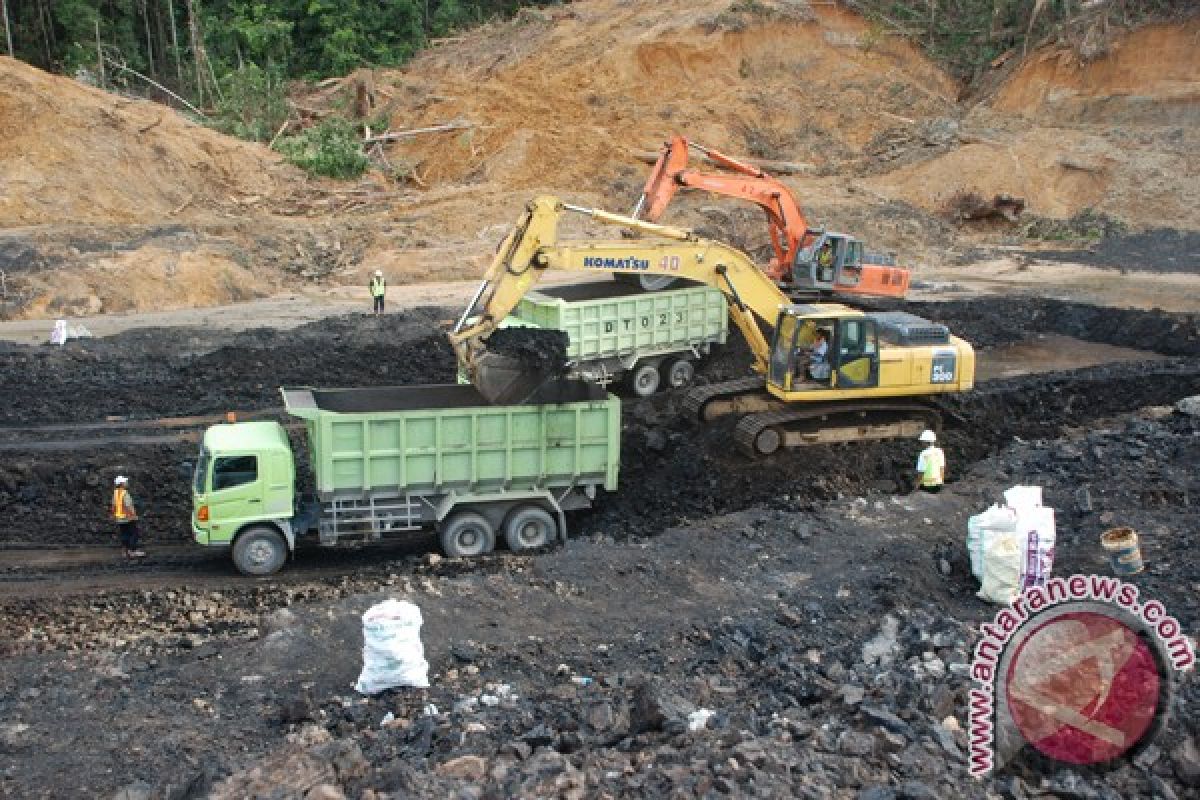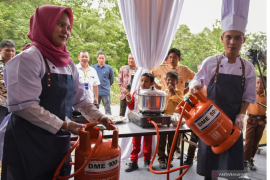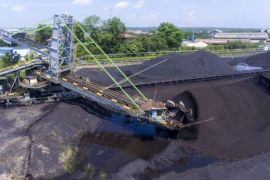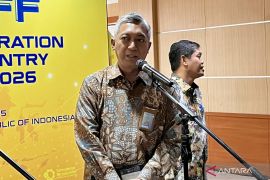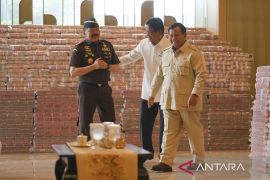We will streamline and improve the supervision system."Jakarta (ANTARA News) - This year, the Ministry of Energy and Mineral Resources has downsized its coal production target to 400 million tons, lower than the production in 2013, which stood at 421 million tons.
"We have set a production target at 400 million tons, which is lower than the production in 2013, as we want to change our paradigm that an increase in revenue is derived from increasing production," stated Syukhtar, the director general for mineral and coal affairs, here on Friday.
He explained that the government was keen to change its outlook that an increase in non-tax state revenues should not always come from increased production.
For this purpose, the Ministry of Energy and Mineral Resources also plans to increase its supervision on the coal and mineral sector to ensure greater accuracy in reporting of production data.
"We will streamline and improve the supervision system," he remarked.
The director general revealed that during 2013, the domestic coal consumption reached 72 million tons. The coal was used for generating electricity and smelting operations, among others.
This year, the domestic coal consumption is forecast to reach 95.5 million tons.
Sukhtar emphasized that in 2013, the non-tax revenues from the coal and mineral sector stood at Rp33.1 trillion, up 38 percent from that in the previous year.
In the interim, the implementation of the Law No. 4/2009 on mineral and coal mining, which bans the export of raw minerals, effective from January 2014, is bound to affect trade.
"The countrys exports will drop since about 62 percent of Indonesias exports are chiefly raw minerals," Trade Minister Gita Wiryawan stated last month.
The ban on exports will also have an adverse effect on social aspects such as the employment sector, he added.
He reminded that, in essence, the implementation of the law will provide added value to Indonesias natural resources.
The minister remarked that in the future, the younger generation should not be left with the only option of selling raw coal. For added value, coals and other mineral resources should ideally be processed prior to export.
More workers will get employment if there is development and increase in the number of industries using mineral resources as raw material, the minister said.
Finance Minister Chatib Basri has recently noted that Indonesias processed mineral exports can increase significantly by 2015, if the mineral and coal mining law is implemented.
"Our processed mineral exports, which currently stand at US$4.9 billion, can increase to US$9 billion by 2015," he added.
The new law, which has come into effect in Jan 2014, bans unprocessed mineral exports. Minerals can be exported only after being purified and processed at smelters.
"The new law will lead to a decline in unprocessed mineral exports in 2014, which can lead to a drop in overall exports," he claimed.
The decline in unprocessed mineral exports can also affect the countrys trade balance. However, the deficit might not grow too wide because the government is also reducing its oil and gas imports as a result of the new biodiesel policy, he noted.
"The biodiesel policy will be fully implemented in 2014. Indonesia was expected to save US$200 million in foreign exchange in 2013, after the implementation of the biodiesel policy. We hope our savings increase to US$4 billion in 2014, as a result of the decline in the oil and gas imports," he reported.
(Uu.A014/INE/H-YH)
Editor: Priyambodo RH
Copyright © ANTARA 2014
